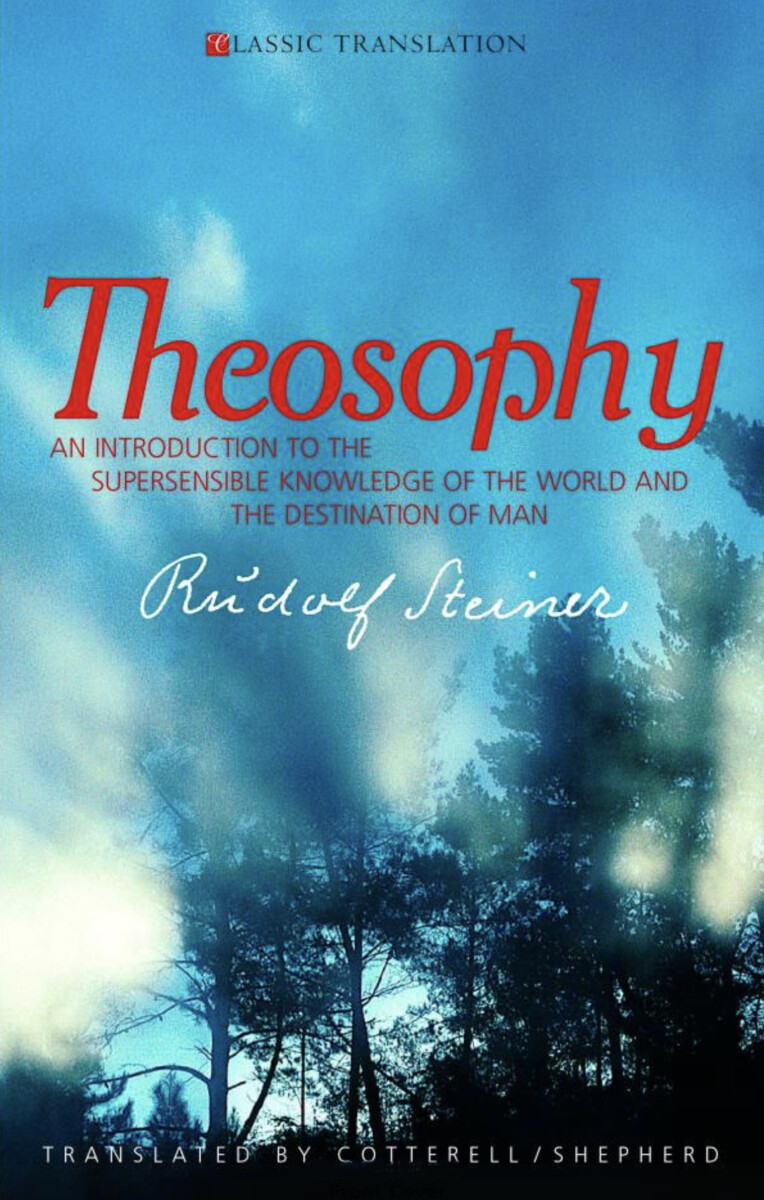Theosophy
An Introduction to the Supersensible Knowledge of the World and the Destination of Man (CW 9)
- Publisher
Rudolf Steiner Press - Published
13th July 1994 - ISBN 9781855841314
- Language English
- Pages 160 pp.
Written in 1904 (CW 9)
Given his energetic involvement in practical initiatives and extensive lecturing, Rudolf Steiner had very little time to write. Of the books he found time to write, four titles are considered indispensable introductions to his teaching as a whole: How to Know Higher Worlds; An Outline of Esoteric Science; Intuitive Thinking As a Spiritual Path; and Theosophy. With the exception of his Anthroposophical Leading Thoughts and Autobiography, Steiner’s writings belong to his earliest work.
In this classic translation of Theosophy, Steiner brings us a psychology based not on the conventional duality of body and mind, but on the more ancient division of body, soul, and spirit. Steiner offers a detailed description of the functions and organs of the three aspects of the human being, as well as the objective realms to which they belong. Just as the physical body originates in and belongs to the material world, so too do the human soul and spirit belong to their specific realms. These are the dimensions through which all human beings travel in the life after death, and in which—after passing the “midnight hour”—we begin to seek our karma and destiny in a new life. Theosophy features one of the most comprehensive and condensed of all Steiner’s accounts of these realms, as well as the events our immortal being experiences in passing through them.
The book ends with a chapter on the modern “path of knowledge,” in which Steiner describes exercises by means of which everyone can develop the latent powers of perception needed to know the higher worlds.
This volume is a translation of «Theosophie, Einführung in übersinnliche Welterkenntnis und Menschenbestimmung» (GA 9)
Rudolf Steiner
Rudolf Steiner (b. Rudolf Joseph Lorenz Steiner, 1861–1925) was born in the small village of Kraljevec, Austro-Hungarian Empire (now in Croatia), where he grew up. As a young man, he lived in Weimar and Berlin, where he became a well-published scientific, literary, and philosophical scholar, known especially for his work with Goethe’s scientific writings. At the beginning of the twentieth century, he began to develop his early philosophical principles into an approach to systematic research into psychological and spiritual phenomena. Formally beginning his spiritual teaching career under the auspices of the Theosophical Society, Steiner came to use the term Anthroposophy (and spiritual science) for his philosophy, spiritual research, and findings. The influence of Steiner’s multifaceted genius has led to innovative and holistic approaches in medicine, various therapies, philosophy, religious renewal, Waldorf education, education for special needs, threefold economics, biodynamic agriculture, Goethean science, architecture, and the arts of drama, speech, and eurythmy. In 1924, Rudolf Steiner founded the General Anthroposophical Society, which today has branches throughout the world. He died in Dornach, Switzerland.


